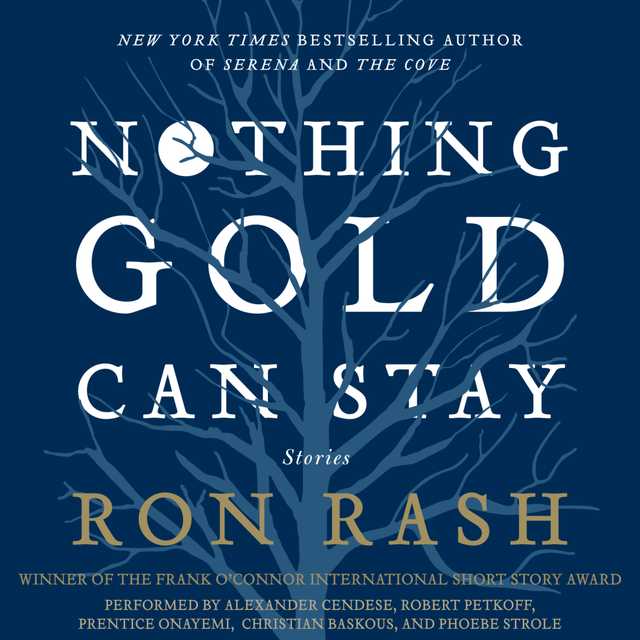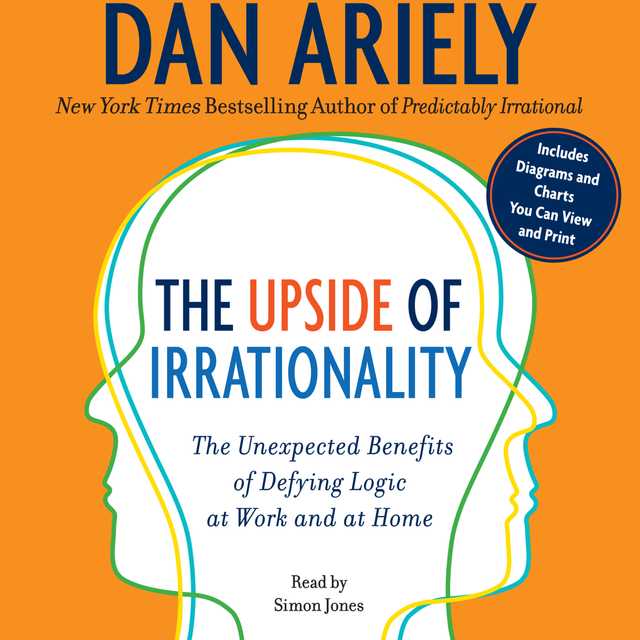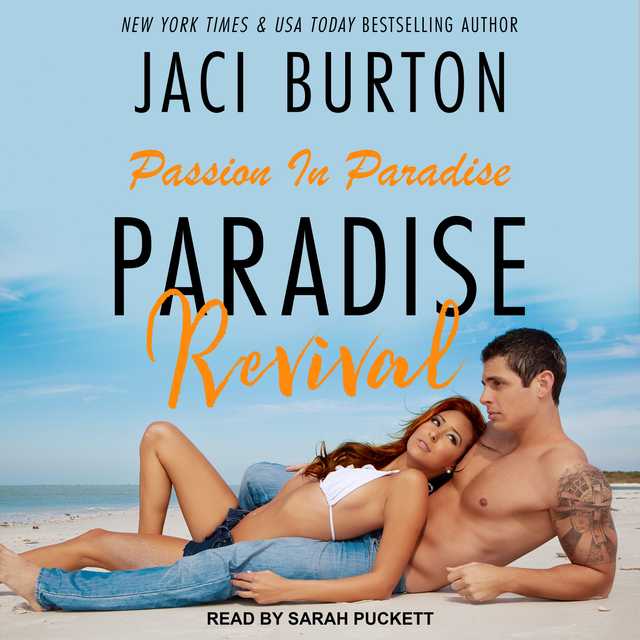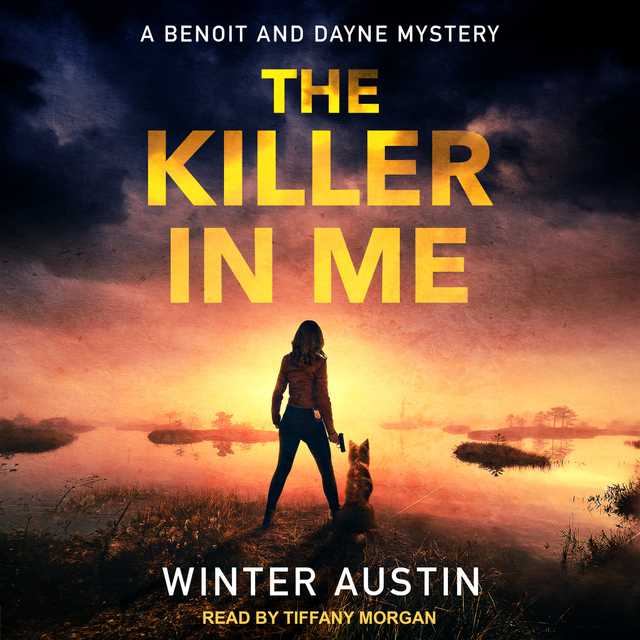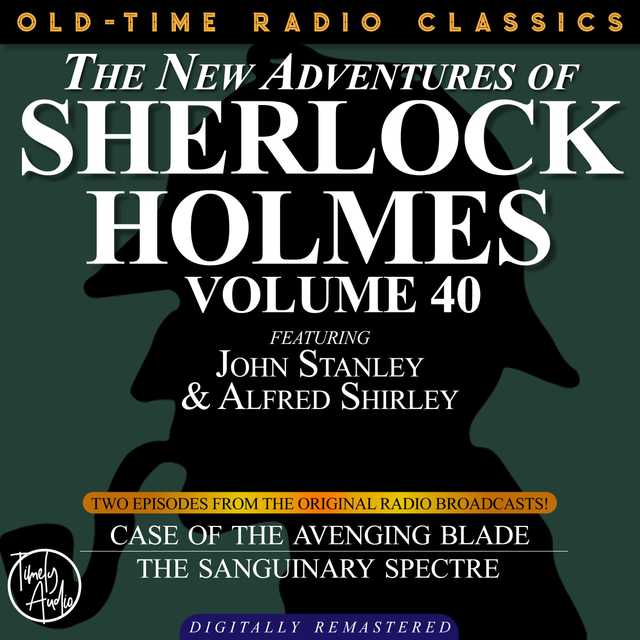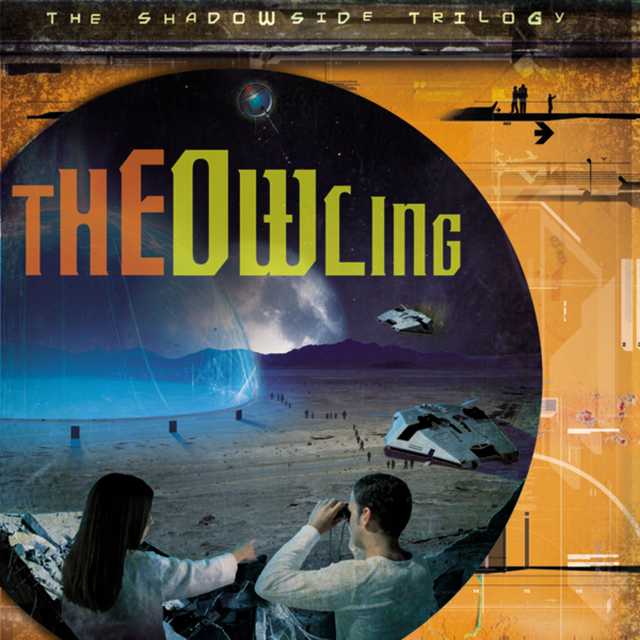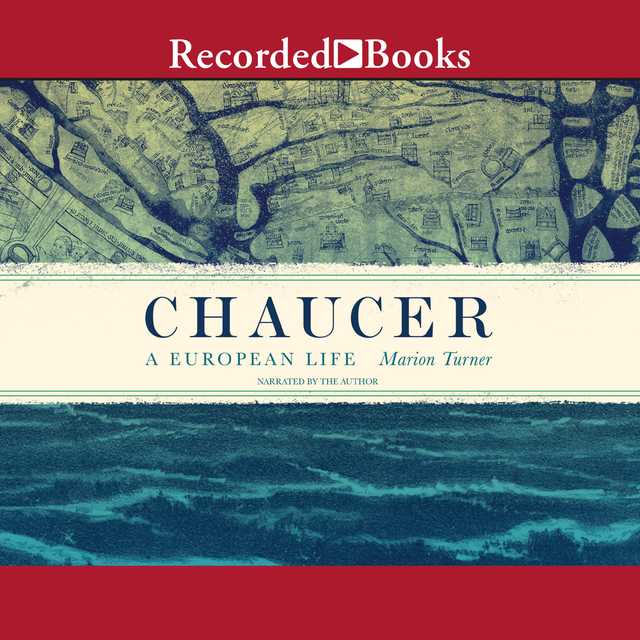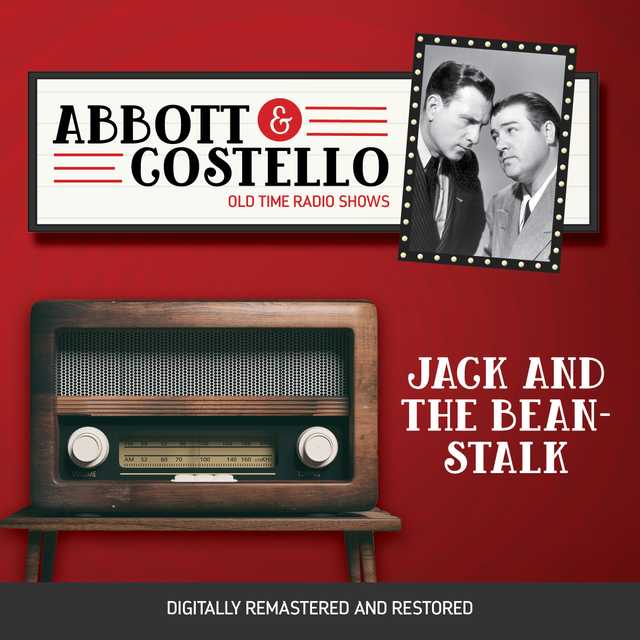Nothing Gold Can Stay Audiobook Summary
From Ron Rash, PEN / Faulkner Award finalist and New York Times bestselling author of Serena, comes a new collection of unforgettable stories set in Appalachia that focuses on the lives of those haunted by violence and tenderness, hope and fear–spanning the Civil War to the present day.
The darkness of Ron Rash’s work contrasts with its unexpected sensitivity and stark beauty in a manner that could only be accomplished by this master of the short story form.
Nothing Gold Can Stay includes 14 stories, including Rash’s “The Trusty,” which first appeared in The New Yorker.
Other Top Audiobooks
Nothing Gold Can Stay Audiobook Narrator
Alexander Cendese is the narrator of Nothing Gold Can Stay audiobook that was written by Ron Rash
Ron Rash is the author of the 2009 PEN/Faulkner finalist and New York Times bestseller Serena and Above the Waterfall, in addition to four prizewinning novels, including The Cove, One Foot in Eden, Saints at the River, and The World Made Straight; four collections of poems; and six collections of stories, among them Burning Bright, which won the 2010 Frank O’Connor International Short Story Award, and Chemistry and Other Stories, which was a finalist for the 2007 PEN/Faulkner Award. Twice the recipient of the O. Henry Prize, he teaches at Western Carolina University.
About the Author(s) of Nothing Gold Can Stay
Ron Rash is the author of Nothing Gold Can Stay
More From the Same
- Author : Ron Rash
- Une terre d’ombre
- The Cove
- Above the Waterfall
- Something Rich and Strange
- The Risen
- Publisher : HarperAudio
- Abraham
- American Gods [TV Tie-In]
- Dead Ringer
- House of Sand and Fog
- Prey
Nothing Gold Can Stay Full Details
| Narrator | Alexander Cendese |
| Length | 5 hours 54 minutes |
| Author | Ron Rash |
| Category | |
| Publisher | HarperAudio |
| Release date | February 19, 2013 |
| ISBN | 9780062264947 |
Additional info
The publisher of the Nothing Gold Can Stay is HarperAudio. The imprint is HarperAudio. It is supplied by HarperAudio. The ISBN-13 is 9780062264947.
Global Availability
This book is only available in the United States.
Goodreads Reviews
Will
October 14, 2020
The title of Ron Rash’s fifth short story collection, Nothing Gold Can Stay, comes from the chestnut poem, with the same title, by Robert Frost. Nature’s first green is gold Her hardest hue to hold Her early leaf’s a flowerBut only so an hour Then leaf subsides to leafSo Eden sank to griefSo dawn goes down to dayNothing gold can stayIt is one of only two three poems I have memorized in my life (the others being Sandberg’s Fog and a classic limerick having to do with Nantucket, thanks for the reminder, Steve), and one that has certainly informed my world view. (cheery sort that I am) That notion may or may not have had merit personally, but for most of the characters who inhabit the fourteen tales in Rash’s Appalachian landscape, that glow of youthful vivacity will soon tarnish. Characters here cover a wide age range, from middle-teens rattling their social cages to old friends in their sunset years, appreciating what they have had and cherishing what remains, from late teens struggling to find their way to a better life to others descending into criminality. They tend toward the edges, young or old with only a smattering in between, and those in the middle do not fare any better than those at the perimeter. Rash’s time line is likewise broad, with a couple of stories set circa Civil War, one in the 1960s, and most being reasonably contemporary.Overall, these stories are about the coexistence of dark and light. In the title piece, two wastrel boys stand with one foot in the world of perdition and the other in a heavenly idyll. Or maybe it is only a dream of light, as hopes are raised several times in these stories, only to be melted down. People here feel trapped, by their past, their circumstances, their weakness. But there are also elements here of incredible love and self-sacrifice, enough to move one (ok, mushy old me) to tears. Life is not wonderful in Rash’s world. Kids want to escape, move on, find something better. But the existence into which they were born drags them under like the rough river in Something Rich and Strange. How much of who we are is accounted for by the circumstances in which we were born, the prison of class? Quite a bit. Jody had watched other classmates, including many in college prep, enter such a life with an impatient fatalism. They got pregnant or arrested or simply dropped out. Some boys, more defiant, filled the junkyards with crushed metal. Crosses garlanded with flowers and keepsakes marked roadsides where they’d died. You could see it coming in the smirking yearbook photos they left behind.Some seek to leave the imprisonment of literal slavery and one the manacles of actual prison.So, life’s a bitch and then you die. Have a nice day. But wait, there’s more. Sometimes, there are pieces of life that hang on to their gloss. Two concerned parents live for a video call from their daughter in the service, every 26 days, a shining moment. Two old friends relish their lifelong friendship and enjoy the soft joys of the now. A young girl finds peace and beauty in a very unlikely place. And there is beauty in Rash’s world, even when its vibrant presence is used as a contrast to the living death of what may be a pointless existence.The OC’s coating starts to dissolve. Its bitterness fills my mouth but I want the taste to linger a few more moments. As we cross back over the river, a small light glows on the far bank, a lantern or a campfire. Out beyond it, fish move in the current, alive in that other world.Sometimes there is even beauty in death. Days passed. Rain came often, long rains that made every fold of ridge land a tributary and merged earth and water into a deep orange-yellow rush. Banks disappeared as the river reached out and dragged them under. But that was only surface. In the undercut all remained quiet and still, the girl’s transformation unrushed, gentle. Crayfish and minnows unknitted flesh from bone, attentive to loose threads.The greatest, for me, was the beauty of a lifetime friendship told in hushed tones as an old veterinarian nestles in the warmth of a moment of serenity. Carson was always comfortable with solitude. As a boy, he’d loved to roam the woods, loved how quiet the woods could be. If deep enough in them he wouldn’t even hear the wind. But the best was in the barn. He’d climb up in the loft and lean back against a hay bale, then watch the sunlight begin to lean through the loft window, brightening the spilled straw. When the light was at its apex, the loft shimmered as though coated with golden foil. Dust motes speckled the air like midges. The only sound would be underneath, a calf restless in a stall, a horse eating from a feed bag. Carson had always felt an aloneness in those moments, but never in a sad way.These being short stories, there must be an O Henry ghost wandering around somewhere, and if you anticipate this you will not be disappointed. There are a number of ironic, even darkly comic endings, and certainly some surprising ones.Gold, as a thematic seam, runs throughout, with actual gold in the title piece, a supposed heart of gold in another, golden hair in a third, pursuit of riches in a fourth, a gold coin in a fifth and so on. I don’t want to lay claim to all the nuggets, so will leave the rest of the lode for those with a miner’s inclination, or if you don’t care for it, a panner’s.My personal favorite was Night Hawks, clearly inspired by the painting, in which a woman, affected by the social impact of her appearance as a kid, struggles to find her place in the world. Must she be limited by an externality that is no longer there? Rash inlays a few literary references in most of the stories, ways maybe to mark a trail in his woods. From A Catcher in the Rye to The Hitchhikers Guide to the Galaxy, from Chekov to Darwin and plenty more. But we know whose woods these are and the paths are clear enough. It may be that nothing gold can stay, but whatever Ron Rash writes is 24 karat and will shine for a very long time, further burnishing his sterling reputation. He seems to breathe in life, landscape and atmosphere and exhale literature. No silver medals for this collection. Only the top prize will do. ===============================THE STORIESIn The Trusty, a grifter in a chain gang plans an escape with a newly met, unhappy Mrs. In Nothing Gold Can Stay, two wastrel boys, stand with one foot in the world of perdition and the other in a heavenly idyll. Rash introduces a bit of magic in Something Rich and Strange, in which a diver, sent to retrieve the body of a drowned girl, has a vision.Where the Map Ends pays a visit to the Civil War era, offering a bit of good news, followed by bad.A Servant of History is a darkly comedic look at how a knowledge of one’s history might come in handy when far from homeTwenty Six Days is the time two working class parents have to wait between skype video calls from their daughter in a war zone. They must endure the insensitivity of some professorial sorts as they constantly fear for her life.A Sort of Miracle contrasts two types of foolishness as a condescending accountant takes his layabout brothers in law into a national park to try to kill a bear.Those Who are Dead Are Only Now Forgiven tells of how fragile is the path out of hopelessness, even when confronted with love. A smart, ambitious young man tries to bring his meth-addicted girlfriend out of her low state.The Magic Bus contrasts extremes, a 60s era carefree sort of freedom on the one hand and a controlling, narrow farm life on the other as a teenage girl is tempted by the promise of escape.The Dowry tells of a post Civil War town in which there is nothing a young Union vet can do to satisfy the Confederate father of his beloved that he is worthy of his daughter’s hand, the father holding a grudge from his having lost an arm in the war. A town cleric finds a surprising solution, in an act of great love.The Woman at the Pond paints a picture of despair touching the life of a high school senior, without quite penetratingNight Hawks was one of my favorites, hitting a bit close to home as it does. A young woman considers decisions in her life, informed by elements of her past that were beyond her control. There is a discussion here of the famous Hopper painting. In case you are interested, here is a site with the image and a look at where the actual location may have been. Three A.M. and the Stars Were Out is a story of long-friendship, loss, rebirth and the value of what remains. Very moving Publication Date - trade paperback - 5/11/14=============================EXTRA STUFFFebruary 16 , 2013 - NPRs Scott Simon's lovely interview with Ron RashFebruary 22, 2013 - Boston Globe reviewFebruary 27, 2013 - Janet Maslin's review in the NY TimesMarch 1, 2013 - I found this review, complete with some fun turns of phrase, in The Charlotte ObserverNovember 19, 2013 - Nothing Gold is named one of the ten best fiction books of 2013 by Kirkus ReviewsJune 6, 2017 - I was alerted by GR friend Linda to the following from April 2017 - WCU's Ron Rash wins Guggenheim Fellowship - Rash deserves all the recognition there is, he is a national treasure.
karen
April 03, 2019
man, ron rash is good.of all the people who write that appalachia-desperation stuff i eat up with a spoon, his writing is just head and shoulders above his peers. he is both muscular and fragile, with a blink-and-you-miss-it quietude. for short stories to have this much depth and impact that they simply haunt the reader...it is quite impressive.these stories span time and theme, although there are elements that recur: escape, regret, nostalgia, yearning...the typical themes of this kind of literature, to be sure, but rash is just so adept at handling them, they feel fresh and new in his hands.they are full of people trying to improve their situations, frequently by cutting corners: gambling, stealing, murdering, running away, but this is not a collection of stories about shiftless criminals. there are also stories of great tenderness and sacrifices made for children, for congregants, for former lovers... and even the stories about people who make questionable moral decisions are so sympathetically written, it fills the brain-heart. you mostly want these characters to succeed, to break out of their situations. there is no judgment here; rash is a storyteller, not a moralist. he is a quiet observer and creator.my favorite stories were cherokee, where the map ends, a servant of history, a sort of miracle, those who are dead are only now forgiven, and three a.m. and the stars were out. but the magic bus has such a great ending line, which can kind of stand as a summary of the collection:(view spoiler)[ Below, the cow had left the spring trough and stood by the barn's ashes, waiting to be milked, not knowing where else to go. (hide spoiler)]not really a spoiler, but some people are sensitive to that kind of thing.will wrote a much better review for this book, so you should go read his instead.and in his review, he quotes this passage, which also struck me when i was reading it:Jody had watched other classmates, including many in college prep, enter such a life with an impatient fatalism. They got pregnant or arrested or simply dropped out. Some boys, more defiant, filled the junkyards with crushed metal. Crosses garlanded with flowers and keepsakes marked roadsides where they’d died. You could see it coming in the smirking yearbook photos they left behind.which reminded me so much of sweat by oingo boingo (although i prefer country sweat, which doesn't seem to be on the youtube) i just love stories about the destruction of the promise of youth and the reality of failure. it feels familiar, for some reason. dink! (that is the sound of me ruefully forced-grinning and my dimple popping)why no five stars, brissette? i dunno. maybe i am being an exhausted retail-worker. let's call it four and a half. it's all arbitrary, anyway.you can read this in march. unless you are laima, and then you can read it when i send it to you.come to my blog!["br"]>["br"]>["br"]>["br"]>["br"]>["br"]>["br"]>["br"]>["br"]>["br"]>["br"]>["br"]>["br"]>["br"]>["br"]>["br"]>["br"]>["br"]>["br"]>["br"]>["br"]>["br"]>["br"]>["br"]>["br"]>["br"]>["br"]>
s.penkevich
August 02, 2015
What is memory but near and far events spread and smoothed beneath the present's surface.There is darkness lurking in the mountains and hills of the human heart. Darkness that can bring a person to their knees, to commit unspeakable acts, darkness enough to drown a life in meaningless oblivion. What is more moving, more deathly beautiful, than to embrace these dying embers into prose to swallow like a bitter pill. ‘Every junky is like a setting sun,’ sang Neil Young about life that is both beautiful but painful to look at long; this collection embodies such sentiments. Ron Rash’s Nothing Gold Can Stay offers portraits of lives descending into the malestrom or seeking to bring their heads above water for breath. These stories are set primarily in Appalachia, but might as well be in limbo or hell. We live in a harsh world where many are born with their luck already drained in towns like a ravenous quicksand, and Ron Rash brings a wide variety of damned souls, from civil war soldiers to present day teenagers, to beauty with clear cut words and quiet demeanor that make them shine like even the brightest of stars.Jody had watched other classmates... enter such a life with an impatient fatalism.The title of the collection comes from Robert Frost’s poem of the same name: Nature’s first green is gold, Her hardest hue to hold. Her early leaf’s a flower; But only so an hour. Then leaf subsides to leaf. So Eden sank to grief, So dawn goes down to day. Nothing gold can stay. Each story is true to this notion and we watch fleeting lives blown about by the winds, nearly powerless to the forces around it, or perhaps not unable but unwilling to resist. There is a refreshing versatility to his tales, with varied faces set over a wide timeline that demonstrates the common thread of humanity in all of us. What better a metaphor for the fragility of our existence in the storm of life than the succinct and haunting Something Rich and Strange where a young girl drowns in a raging river, intending only to take a few steps in yet overcome by the current. [H]er mouth and nose open and the lungs explode in pain and then the pain is gone as bright colors shatter around her like glass shards, and she remembers her sixth-grade science class, the gurgle of the aquarium at the back of the room, the smell of chalk dust that morning the teacher held a prism out the window so it might fill with color, and she has a final, beautiful thought - that she is now inside that prism and knows something even the teacher does not know, that the prism's colors are voices, voices that swirl around her head like a crown, and at that moment her arms and legs she did not even know were flailing cease and she becomes part of the river. We all become victims to the river of time, our lives washed away forever. The response by the diver who finds her body is us, the reader, seeing a corpse stripped of flesh but a testament of beauty and serenity having lived, lost and vanished. Or perhaps it is, as in Those Who Are Dead Are Only Now Forgiven, the sight of a former love lost in the grips of a meth addiction, a path taken instead of college and escape from the clutches of a toxic town as was the liferaft taken by her boyfriend, ‘he was unsure which unsettled him more, how much beauty she’d lost or how much remained.’ So much life is left in these people, so much possibility and love, yet the spark is fading and often of their own undoing. Perhaps the bleakest of moments are those where all shreds of decency are tossed aside for the sake of survival, such as the title story where two young men rob their former employer to cash in on another fix. His transgressions as a poor boss, or the fact that he is dead and rotting in his own home, serve to justify their actions instead of humanize them all. Rash reaches for the heart and often punches you in the gut on the way there, and we are all better for it.Rash’s prose is a serene and crystal-clear river, where all the gems and trout can be seen from the surface. The river flows smoothly onward, lulling us in its wake. However, these are rivers that tease the ocean and refuse the delta, often avoiding direct mention of the dark heart at their center. Always writing in a circuitous manner around the dark impetus or past of the story builds great tension and keeps the story moving by way of mystery, but is also overused and becomes a bit of its own cliche when the stories are read in bulk. It occasionally feels like pulling teeth. The language is simple, economic and straightforward, and while there are few outstanding moments it is bathed in a tender humility that easily breaches the fortitutes of the reader's heart. Each story tends to end with a surprise, bleak twist. While I personally enjoy a depraved, gut-wrenching ending, these somehow feel a bit contrite and expected when reading straight through. It has a feeling that a word should exist for—’twee’ isn’t the right word but it comes close, perhaps the opposite of twee with the same shuddering effect—where the bleakness is almost too cutesy and forced. The high school sweetheart meth story has the collegiate boyfriend throw his future away to stay and do meth just to rot away with the one he loves. It’s charming enough but also eye-rolling especially as nothing in the story foreshadows such a drastic and depraved change of heart and Jody spends the whole story trying to drag her from the meth house to his college town. The Trustee, however, is a wonderful example on how the dark twist ending works to the stories benefit as it really drives the memory of the tale deep into the reader where they will never forget it.What truly rescues Rash from mediocrity and propels him into brilliance is his keen insight into his own strengths, which he mines for pure gold. Cherokee is a prime example of this. The story follows a couple on their desperate attempt to save their Ford Ranger (I had a particular empathy for this story as my own first vehicle was a forest green, 1996 Ford Ranger which I lovingly dubbed The Danger Ranger to embrace all its flaws, dents, cracked windshield and the way it brought me to truly love music note for note in all its intricacies as the volume would constantly turn itself to max regardless of any finagling with the dials) by gambling all they own at a casino. The couple is like many of us, and many of the other Rash characters, who spend their entire days working themselves into exhaustion yet have nothing to show for it. The gambling story is rather passionless and boring, as is the whole story to be honest, not like the brow-sweating manic feel the reader is forced to feel when reading a similar scene in Dostoevsky’s The Gambler. Dostoevsky has you clenching your teeth along with his narrator so intensely they may burst free from your skull, but here the rise and fall of their winnings has minimal emotion attached to it. That may be the point, perhaps, but more importantly is Rash’s ability to convey the humanity of association with those around the couple during this scene. There is a Metallica t-shirt sporting schmuck who thrives when they lose and condescends them when they cash out ahead for not ‘having balls’, and a crippled veteran who buys them a hotel room and makes a soulful connection with them. These two are an incredible Devil-and-Angel-on-your-shoulder metaphor, especially as the angel character isn’t necessarily a salvation, but a peaceful resting place that still holds the prospects of self-damnation if one isn’t careful. It is no surprise to anyone, especially the reader, when in the morning beerlight the man is found in the grips of a hazardous gambling addiction. We don’t live in a world of certain salvation, only minor moments of serenity, and we must not give in to the ease of temptation that will be our undoing.While Ron Rash may fall into his own cliches, he has a gift of economy and self-assurance that paves the road to literary enjoyment. I strongly urge any reader to walk this path, though it is beset on all sides by the tyranny, evil, and apathy of what could have been good women and men. Crisp, clear and contemplative, Rash explores the darkness in the hills of Appalachia as well as the human heart and brings out pure gold, but the kind that can stay.3.5/5She was less of what she had been, the blue rubbed from her eyes, flesh freed from the chandelier of bone. He touched what once had been a hand. The river whispered to him that it would not be long now.
Brian
May 13, 2014
One of the reasons short fiction is my favorite genre is the requisite economy of words an author must employ. A virtuoso can make you feel all of the unsaid things; fleeting djinns seen with peripheral vision that may/not be there. My solid measuring stick of fantastic writing is reaching the end of a story and getting that unsettled just what the fuck is going on here feeling - a sensation that can come from something genre-stretching from Ben Marcus as much as a writer penning a piece in a classical style. Ron Rash is one of the latter and one of the most talented writers in the genre today.Rash's southern roots show in all of the pieces in this collection - and that's a good thing. Those djinns aren't hidden from him - he can write a heartbreaking piece set in the shadow of the Civil War as well as a modern day love story centered around meth. He could teach a doctorate course on how to write dialogue. And then there are those passages that catch the reader unaware. The eyes mist, the throat lumps: Maybe it's because the picture's a little blurry, but one second I see something in Kerrie's face that reminds me of when she was a baby, then something else reminds me of her in first grade and after that high school. It's like the slightest flicker or shift makes ones show more than the other. But that's not it, I realize. All those different faces are inside me, not on the screen, and I can't help thinking that if I remember every one, enough of Kerrie's alive inside me to keep safe the part that isn't. That's from the story "Twenty-Six Days" in this collection; a mother's thoughts after a Skype video chat with a daughter deployed in Iraq. Any reader that comes across this paragraph that has ever held these fragmented images of a child far away, rarely seen, can understand exactly what Rash is talking about (regardless of the situation surrounding that part of us that is growing older). This is what we talk about when we talk about love.Rash is about to become so very much more famous when the movie Serena is released later this year, and he deserves all of the attention he will get from penning a great novel that became that movie. But it is the short stories that have me in his orbit. I entreat you to sample his work. You won't be disappointed.
Andrew
May 05, 2021
I’ve been meaning to catch up with Appalachian writer Ron Rash for some time and I finally settled on this collection of fourteen short stories, all set in the part of the world he knows best. There’s quite a range of tales here but many are melancholy in nature and happy endings are pretty hard to find. However, humour is also sprinkled through some of the stories, most notably in A Sort of Miracle in which one man’s desire to rid himself of a couple of pesky relatives who’ve parked themselves in his home leads to a bizarre outcome. In Cherokee a young, hard up couple decide to visit a casino to gamble money they can’t afford to lose in the hope of achieving a big win. This is probably my favourite as I really identified with the hopes and fears of this young couple. Another I really liked is The Dowry in which an aging ex-Confederate Colonel, a veteran of the Civil War, refuses to agree to the marriage of his daughter to a former Union soldier due to the loss of one of his hands during the fighting. Sometimes the stories have a punchy, surprising conclusion, but more often the reader is simply left to muse over a moment in the lives of the characters he’s created.As is the case in pretty much every short story collection I’ve ever picked up, some really grabbed me, a few passed me by and the rest contained something of interest, even if they’ll probably not stay long in my memory. Rash definitely has a recognisable voice and though the themes and timeframes changed from story to story I felt that I could always detect an undercurrent of cynicism and fatalism in his writing. I liked his style, these stories made me think and I expect I’ll be back for more from this gifted wordsmith.
Paul
March 31, 2020
It hurt to read these stories.I had to read these stories.
Claire
September 06, 2021
Another short story collection that my #librarianhusband and I read to each other, and it was perfect! So many brilliant stories, brilliantly written. My favourites: In The Trusty, a convict on a chain-gang escapes and is double-crossed. In A Sort of Miracle, two lazy young men are embroiled in a plan to catch a bear. And in Three A.M and the Stars were Out, an elderly vet (in both uses of the word) visits his farmer friend who he was with in Korea, to help him deliver a stuck calf. They are all moving, witty, and I know this shouldn't really matter with a short story - but a perfect length for reading to each other. (And I'd also recommend Rash's collection, Burning Bright.)
Shaun
November 25, 2014
Okay, it's official: Ron Rash is a literary genius.But seriously, Ron Rash is a literary genius, at least in my book. This collection of short stories will not disappoint Rash's fans and is sure to earn him some new ones. Though I thought all the stories were quite strong, I especially enjoyed reading "Something Rich and Strange" which served as the inspiration for his novel Saints at the River.
Trish
April 10, 2013
”Water has its own archeology, not a layering but a leveling, and this is truer to our sense of the past, because what is memory but near and far events spread and smoothed beneath the present’s surface.”The gorgeous hardcover edition of a new collection of stories by Ron Rash produced by Ecco Books made me pick it from among the mass of new books on a shelf. I’d never read anything by Rash before, but I so regret the lack of attention that enabled me to overlook this master until now. I exhort you not to make my mistake. Do not miss this!Ron Rash brings us news of the Blue Ridge backwoods almost untouched by our quickening lifestyle and fulsome economy. The timeframe is extended: we move from the Civil War through the 20th Century, but we see daytime TV now and the characters who find it fascinating. His stories are gems of economy--he paints a picture, and then quietly and inexorably ratchets the tension. Our brains toil away at resolution, but Rash often surprises us, jolting us with a solution that demonstrates our naiveté and gullibility. This stellar collection of stories from America’s Appalachian Mountain region carries with it the whiff of woodsmoke, the clang of metal in a bird-silent wood, and the chill of an unsmiling blue eye. Gold is a theme that runs through the stories: how to get it, how to keep it, how in the end it means nothing at all. One finds gold easily in the first couple of stories, and then one finds oneself scanning the final stories to see where the gold lay. A reviewer shows us the Frost poem, the reference to which this title refers, but one cannot help but try to make sense of the title for ourselves, just as it is, with no more knowledge behind it. And in this way we receive confirmation for what we suspect: that beauty, wealth, things that money can buy, are only transitory. Life itself is transitory. My favorite stories are the first and the last. In the first, “The Trusty”, Rash caught me out completely—it was like an O. Henry celebration. In the last, “Three A.M. and the Stars Were Out”, the writing was so quiet and so generous and so wise. Another reviewer praises Rash's quietude and the following quote, from the story “Night Hawks”, is an example of the quietude and the alienation one finds in the work:”Often she felt like an inmate pressing palm to glass and yet feeling no warmth from a hand less than an inch away.”This is a book you may well want to own in paper. Great literature should be visible and accessible on our shelves and publishers create beautiful volumes as a testament to great literature. This one is printed like a collection of poetry. It is slim. Even the spine is gorgeous. But don't pass it up if all you can find is an ebook.
David
August 27, 2014
I like me some gritty Southern fiction now and then, and Ron Rash delivers, though he's not quite Daniel Woodrell or William Faulkner, at least not yet. But this collection of sixteen short stories was very listenable, very varied and flavorful, and while not quite popping 5-star greatness for me, it satisfied my yearning so I will definitely check out more by him.All set in the Appalachians, these are stories are about hard, surviving mountain people. They range from a post-Civil War story about a preacher called upon to make a gruesome sacrifice to heal his still-divided community, to modern times, with promising college-bound young teenagers unable to escape the gravity of poverty and meth, or a scarred former schoolteacher who finds solace only on the night shift at a radio station.There is retribution, not always entirely deserved, such as for the pompous Englishman who comes to America to study the locals — "He was no university don muttering Gradgrindian facts facts facts in a lecture hall’s chalky air, but a man venturing among the new world’s Calibans." And for the title character of The Trustee, a Depression-era convict who figures he can charm a young bride into helping him escape.In very few of these stories do things end well. Not all of them even have much of an ending. But this is a nice bit of recrafted Appalachian lore, both modern and period.
Lou
April 28, 2013
When you think of this authors writings you rekindle a great canvas dealing with memorable characters pitted into diversity with very human dilemmas, you have a great landscape as the backdrop, the characters just come alive, live, and breath off the page with his own crafted ability to spin a tale with a terrible beauty, a potent language, a prose evocative and lush, darkly poetic and a cast of characters with flaws like many humans on this earth. This collection has all these qualities mentioned in its storytelling.You will find characters in these stories who were prisoners, young wives unhappy, men strapped for cash, gamblers trying their luck with lucky charms, fugitives on the run in the wilderness, kin loved and missed in a war effort, pals out for a hunt, characters in schooling while others cooking meth in a disused house, youngsters misbehaving, a pastor asking others to forgive after the confederate war and a radio DJ who was once a young daughter ashamed to smile.Appalachia is the backdrop for his characters just as it is Charles Frazier's and so was Tennessee for William Gay, Mississippi for Larry Brown, the Ozark's Daniel Woodrell's, Louisiana James Lee Burke's, Texas Joe Lansdale's, Ohio Donald Ray Pollock's, Southern Indiana Frank Bill's and Southern California Don Winslow's.This was a short story collection that one might find they will hold in high esteem in a prized position on their shelf, to take down to read often on a solemn and silent night.A few words on some of the stories.The TrustyA trusty of a chain gang fetches water for the thirsty men in a near by farm.That farm has a beautiful young woman greet him and soon they both hatch to escape from their prisons.He has a slight of hand problem that steals from others.Descriptive and well written, with a keen sense of place and drama.Something Rich and StrangeGothic tale on a woman lost to sea and a divers seeing of her in various stages of her bodies disappearance.Where the Map EndsAfter the civil war two fugitives on the run, one black the other mixed race encounter a farmer he tells of his loss in life and he gives them an important route to safety but there is one catch.Well done story and all happening as if you are there right in the scene.Twenty-Six Days A couple clean for a living and during their work you are taken through their emotions and concern for their daughter who is a solider in another part of the world.Thanksgiving approaching and they hope not to have that dreaded call informing them she has been killed or hurt.First person narrative on a parents concern and love for the safe return of their child.A Sort of MiracleA few pals go out into the mountains to hunt bear.One finds himself in a trap, an icy kind of affair.The DowryThe union war has gone now, a pastor ventures out to pay a visit on request to ask a colonel to give his daughter his blessing and permission to marry a man that the father wishes to try an kill again, one that had belonged to the people he fought against in the war.The pastor asks for him to embrace forgiveness and more the New Testament message than eye for any eye of the Old.Night Hawks"Ginny slept as the sky cleared to a high, bright blue. By noon the temperature was in the forties. When her alarm clock went off at three, she lay in bed a few minutes listening to cars slosh through melting snow. She would not need a ride into work. She would drive herself across town, looking through safety glass as she passed the school where she had taught, then the hospital where her face had been stitched back together, the restaurant where she and Andrew had eaten breakfast. At the radio station she would unlock the door, and soon enough Buddy Harper would end his broadcast and leave. She would say, This is the Night Hawk, and play "After Midnight." Ginny would speak to people in bedrooms, to clerks drenched in the fluorescent light of convenience stores, to millworkers driving back roads home after graveyard shifts. She would speak to the drunk and sober, the godly and the godless. All the while high above where she sat, the station's red beacon would pulse like a heart, as if giving bearings to all those in the dark adrift and alone."Review also @ http://more2read.com/review/nothing-gold-can-stay-by-ron-rash/
Larry
May 12, 2014
It always seems strange to get a book that is only a year old for 99 cents online. And it is nice when the book is as good as this one by Appalachian regional writer Ron Rash. His short stories are dependably weird and sometimes a bit grim but I have now read enough of his work – poetry, novels, short stories – to feel comfortable with him just about all the time. I especially like his kind of offbeat writing in his short stories because it does not seem so important to fully understand each one right away. Sometimes I have to read through a story a second time to figure something out but his writing is enjoyable enough that you don’t mind taking a second look. I found an NPR interview with Ron Rash about this book at http://www.npr.org/2013/02/16/1721752.... He is fun to listen to, just a regular guy whose popularity is justifiably increasing. This is Rash’s fifth collection of short stories. I am looking forward to reading the couple I have not gotten to yet. His popularity has lead to the republication of some of his earlier works, especially his poetry. You should not skip his poetry. Ron Rash fans are still eagerly awaiting the release of the commercial film based on his bestselling novel Serena. Previously anticipated release dates have passed. Rumors that the film would be in the 2014 Cannes Festival have proven untrue and there is even some scuttlebutt that the film is still short of completion as of May 2014. While the caliber of the director and stars seem to strongly suggest the eventual release of the film, Ron Rash has no involvement and claims no knowledge of a release date or any details.Nothing Gold Can Stay contains fourteen short stories. Most have appeared in earlier periodicals. I have some favorites but there is not a bad one in the bunch. Four stars.
David
May 08, 2014
He may be renowned as a novelist, but his short stories are where I think he shines. Ron Rash might just be the finest short story writer alive.
Most Popular Audiobooks
Frequently asked questions
Listening to audiobooks not only easy, it is also very convenient. You can listen to audiobooks on almost every device. From your laptop to your smart phone or even a smart speaker like Apple HomePod or even Alexa. Here’s how you can get started listening to audiobooks.
- 1. Download your favorite audiobook app such as Speechify.
- 2. Sign up for an account.
- 3. Browse the library for the best audiobooks and select the first one for free
- 4. Download the audiobook file to your device
- 5. Open the Speechify audiobook app and select the audiobook you want to listen to.
- 6. Adjust the playback speed and other settings to your preference.
- 7. Press play and enjoy!
While you can listen to the bestsellers on almost any device, and preferences may vary, generally smart phones are offer the most convenience factor. You could be working out, grocery shopping, or even watching your dog in the dog park on a Saturday morning.
However, most audiobook apps work across multiple devices so you can pick up that riveting new Stephen King book you started at the dog park, back on your laptop when you get back home.
Speechify is one of the best apps for audiobooks. The pricing structure is the most competitive in the market and the app is easy to use. It features the best sellers and award winning authors. Listen to your favorite books or discover new ones and listen to real voice actors read to you. Getting started is easy, the first book is free.
Research showcasing the brain health benefits of reading on a regular basis is wide-ranging and undeniable. However, research comparing the benefits of reading vs listening is much more sparse. According to professor of psychology and author Dr. Kristen Willeumier, though, there is good reason to believe that the reading experience provided by audiobooks offers many of the same brain benefits as reading a physical book.
Audiobooks are recordings of books that are read aloud by a professional voice actor. The recordings are typically available for purchase and download in digital formats such as MP3, WMA, or AAC. They can also be streamed from online services like Speechify, Audible, AppleBooks, or Spotify.
You simply download the app onto your smart phone, create your account, and in Speechify, you can choose your first book, from our vast library of best-sellers and classics, to read for free.
Audiobooks, like real books can add up over time. Here’s where you can listen to audiobooks for free. Speechify let’s you read your first best seller for free. Apart from that, we have a vast selection of free audiobooks that you can enjoy. Get the same rich experience no matter if the book was free or not.
It depends. Yes, there are free audiobooks and paid audiobooks. Speechify offers a blend of both!
It varies. The easiest way depends on a few things. The app and service you use, which device, and platform. Speechify is the easiest way to listen to audiobooks. Downloading the app is quick. It is not a large app and does not eat up space on your iPhone or Android device.
Listening to audiobooks on your smart phone, with Speechify, is the easiest way to listen to audiobooks.

